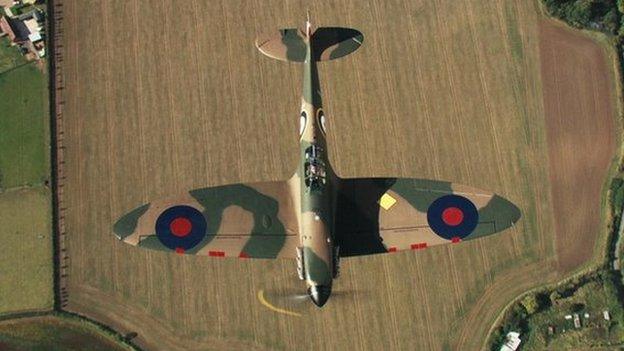WW2 Spitfire to be unearthed from Cambridgeshire fen
- Published
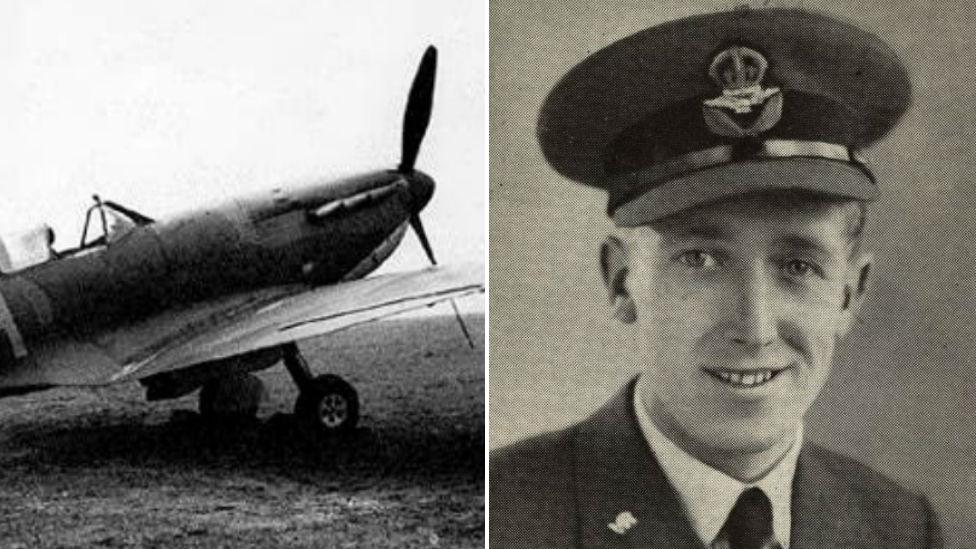
Pilot Officer Harold Penketh died when his Spitfire Mk 1A crashed on a routine training exercise
A Spitfire that crashed in Cambridgeshire while on a training mission during World War Two is to be dug up by archaeologists.
The Rhodesian Squadron Royal Air Force, external plane, based at RAF Wittering, crashed at Holme on 22 November 1940.
Pilot Officer Harold Penketh, from Brighton, did not bail out and died.
The Spitfire remains were found after a geophysical survey of the area. It is hoped the recovered parts will be put on public display.
The cause of the crash was never fully established, although witnesses said the Mk 1A Spitfire X4583 broke formation and nose-dived into farmland in the village of Holme, south of Peterborough.
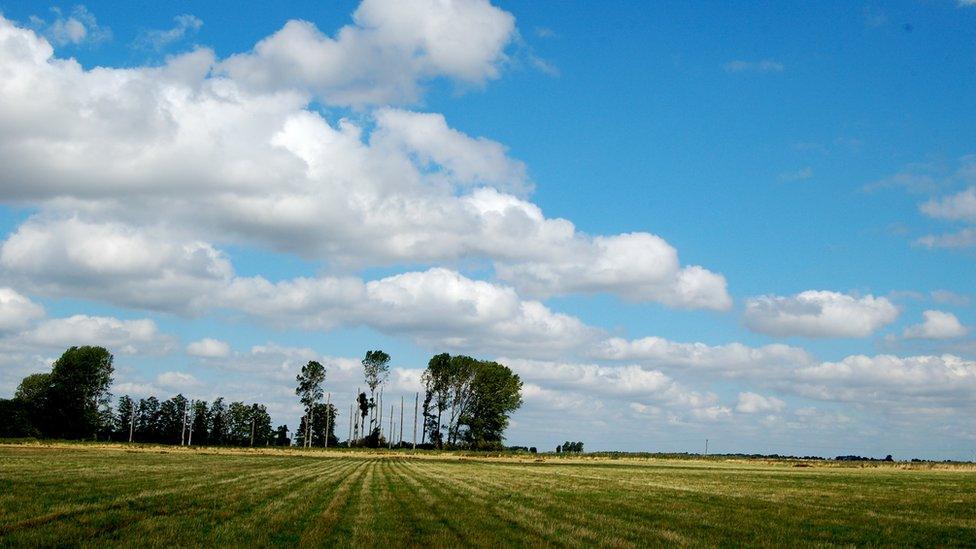
Experts expect it to take about a week to excavate the Spitfire from its crash site in Holme
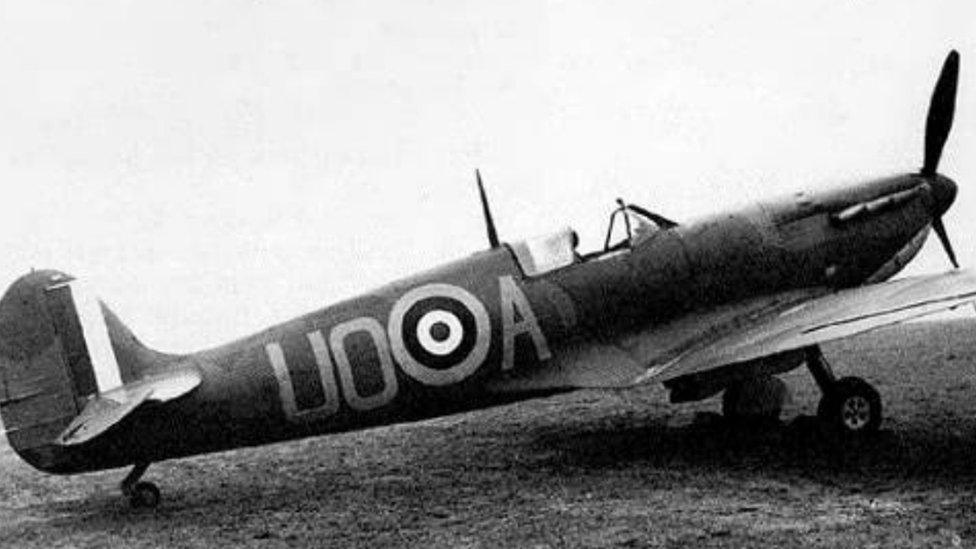
Archaeologists are not sure how much of Pilot Officer Penketh's Mk 1A spitfire will be retrieved
An investigation concluded either the pilot's oxygen system failed or there was a physical failure of the plane.
Pilot Officer Penketh, 20, made no attempt to use his parachute. His body was recovered from the wreckage and returned to his family.
The "enormous crater" created by the Spitfire quickly filled with water as the water table in the area is high, eyewitness John Bliss, who was a child at the time, said.
The spitfire remains have lain in their watery grave for 75 years.

What might archaeologists find?
Lead archaeologist Stephen Macaulay said the fenland peat should have kept the Spitfire "reasonably well-preserved"
They hope to retrieve the engine and armaments
A geophysical survey suggested the engine is buried two to three metres beneath the surface

The crash site was located after a geophysical survey and metal detecting carried out by Cranfield University in August.
The excavation, which started on Monday and is expected to take a week, is being led by Oxford Archaeology East.
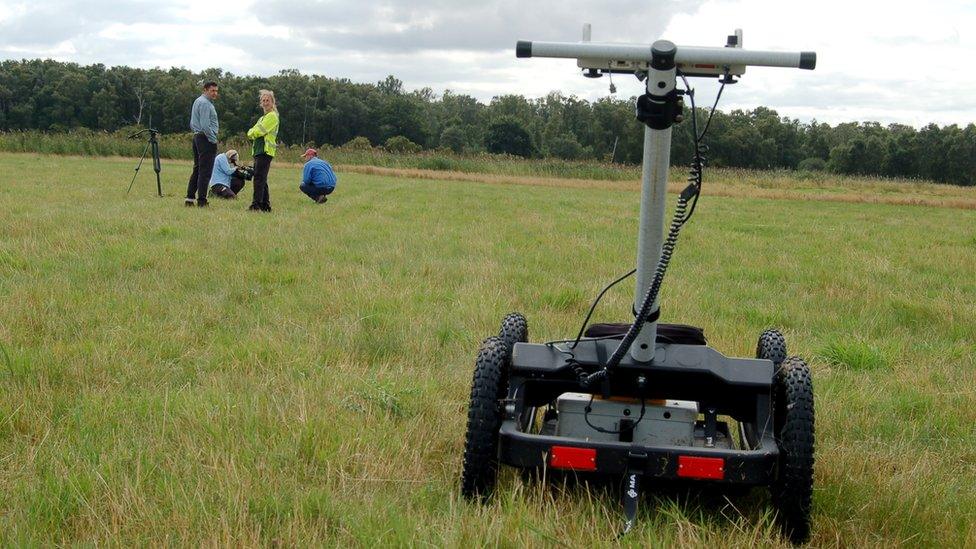
Geophysicists located the Cambridgeshire crash site using specialist equipment
The remains, which are still the property of the Ministry of Defence, will be cleaned and documented. Some are expected to be put on display later this month.
Following the excavation, the land will be restored to a mix of fenland habitats and managed as part of the Great Fen reserve by the Wildlife Trust for Bedfordshire, Cambridgeshire and Northamptonshire.
- Published9 July 2015
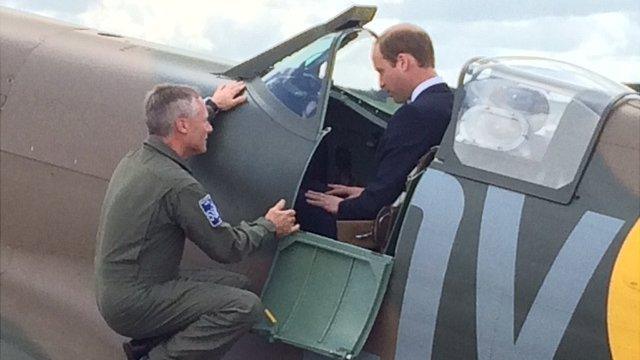
- Published4 July 2015
